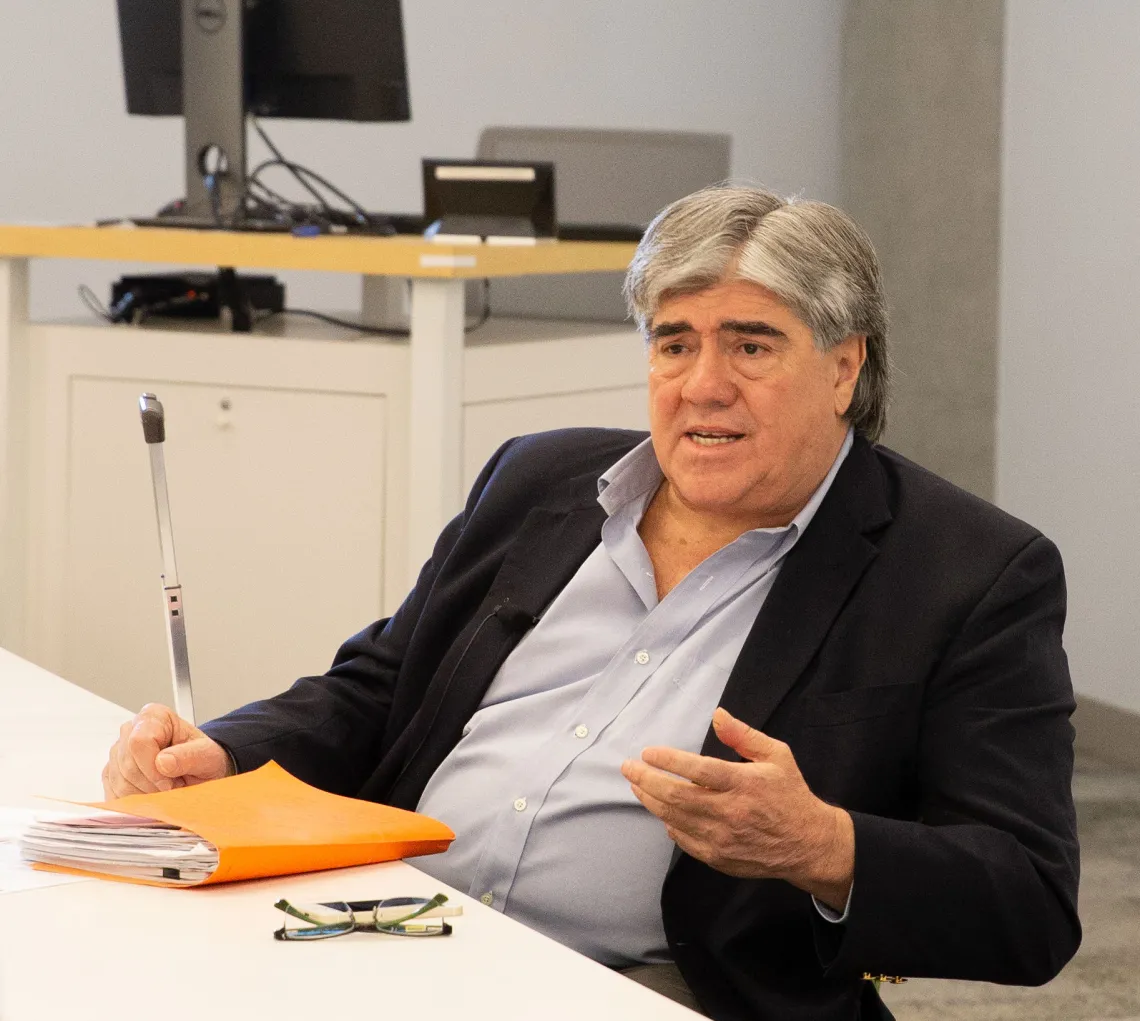Reflections on 35 Years of Mexico-U.S. Water Diplomacy with Ambassador Alberto Székely

The Science, Health and Engineering Policy and Diplomacy Initiative welcomed the most recent speaker in its 2018-19 Speaker Series, Ambassador Alberto Székely.
Ambassador Székely’s presentation, Reflections on 35 Years of Mexico-U.S. Water Diplomacy, discussed the history of water rights between the US and Mexico.
The diplomatic relations surrounding water between our two countries traces back to 1889 and the establishment of the International Boundary and Water Commission (IBWC). While this commission is still in existence today, it is unclear whether it has the resources, authority or commitment to meet the ever-changing needs of water policy in the border region.
Ambassador Székely highlighted the tremendous contributions of academia in this long history – the involvement of academics, researchers and universities brought a diverse perspective and more accountability to the IBWC and the state of water diplomacy in the region.
“As long as we are working on the basis of facts, of what science is advising us, and working with experts,” explained Ambassador Székely, “we were fine.”
Over its history, the IBWC has been seen as such a great example of well-structured water policy that it acted as a template for international commissions around the world. Székely recalled how great it was to hear how the experience of IBWC impacted international river law across the globe.
However, even as certain members of the commission tried to steer the IBWC in the right direction, it has not managed to remain relevant into the present. Members of the IBWC wrote a paper on climate change in 1978. They saw extraordinary drought coming and recognized that we would soon have to deal with scarcity. This group represented a generation of individuals trying to take the IBWC from success in the past to success in the future if it could accommodate to new realities. Those realities included dealing with ground water, major drought, and other new issues.
Government and commission leaders did not heed those warnings. They continued operating in the mindset of past success.
With the population of the border region expected to grow to 25 million by 2030, doubling the 2010 population, the future of the border region is at stake. “If we don’t wake up to these realities and create limits of growth, this will become as chaotic as other areas that are growing without proper planning,” added Székely.
During the presentation Székely was asked how the young generation of students can address these issues. He highlighted the importance of international law studies and the need for universities to place high value in interdisciplinary studies. He held up the Center for Complex Sciences at the National Autonomous University of Mexico as an example of universities focusing on the broad educational needs within STEM fields.
Ambassador Székely concluded that now is not the time for traditional water rights, now is the time for big-picture decision making.
The audience included UA researchers, deans and campus leaders committed to advancing diplomatic relations through science. The speaker series will lead into the 2019 Science, Health & Engineering Policy and Diplomacy Conference happening October 23-25, 2019 here in Tucson, Arizona. More information can be found at https://shediplomacy.arizona.edu/.
Alberto Székely, from Mexico City, obtained his law degree from the University of Mexico and went on to earn a Master of Arts and a Master of Arts in law and diplomacy degrees from the Fletcher School at Tufts University, a Ph.D. in international law at the University of London, and an honorary doctorate in law from the University of New Mexico.
His academic career has included teaching international law at the University of Mexico, El Colegio de Mexico, Arizona State University, Johns Hopkins University and the University of Houston. His diplomatic work led him to become a career ambassador in the Mexican Foreign Service, where he was in charge of Mexico's legal affairs at the United Nations and at the Organization of American States, performing for 8 years as the Chief Legal Advisor of the Mexican Foreign Ministry. He participated in the negotiation of the U.N. Law of the Sea Convention and of many multilateral and bilateral environmental treaties, after which he opened a legal and consulting firm where he has practiced environmental and natural resources law for the last 25 years, including mostly work on conservation and preservation of resources and ecosystems, as well as the creation of various natural protected areas, particularly in coastal and transboundary environments.
He has published books and articles extensively in those areas, mostly in the United States, was elected by the U.N. General Assembly as a member of the International Law Commission, serves as member of the Permanent Court of International Arbitration at The Hague and has served as ad hoc judge and arbitrator in international tribunals. For the last decade, he has undertaken extensive work for the protection of forests in the context of climate change issues.

